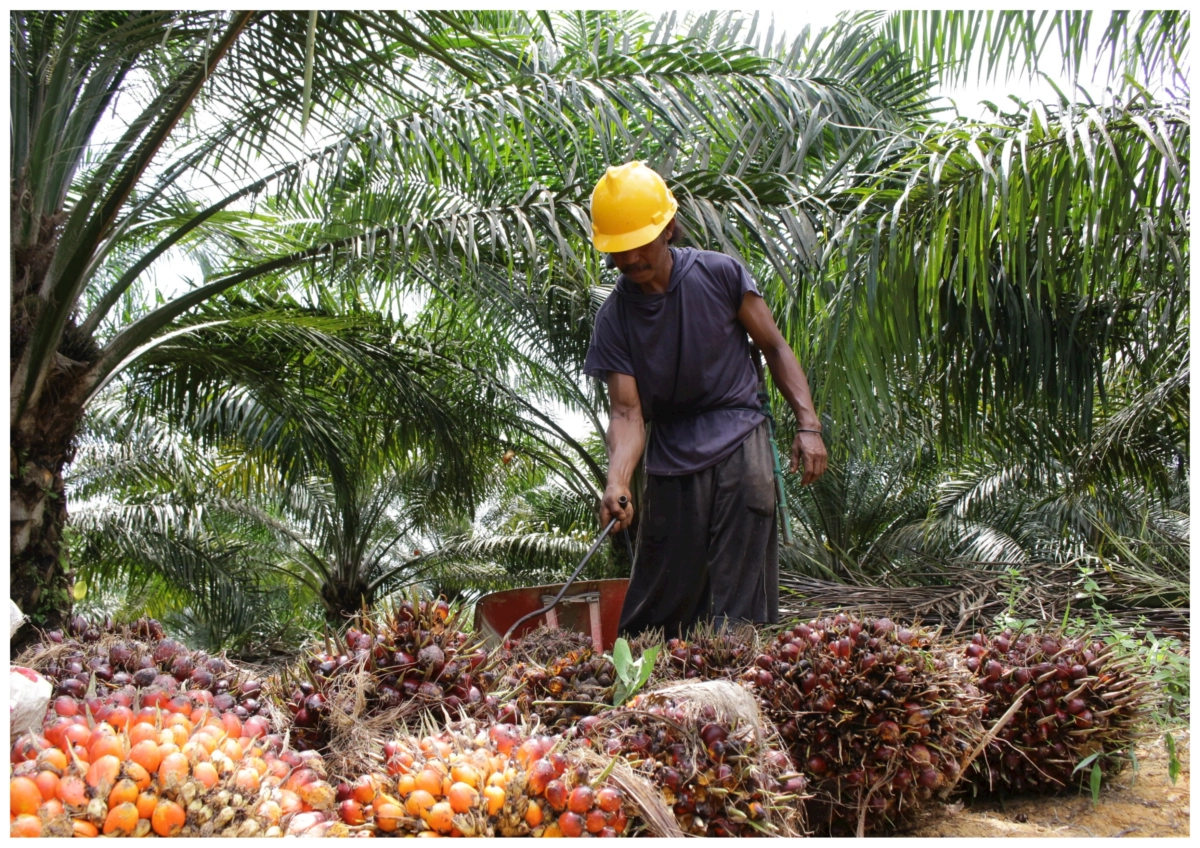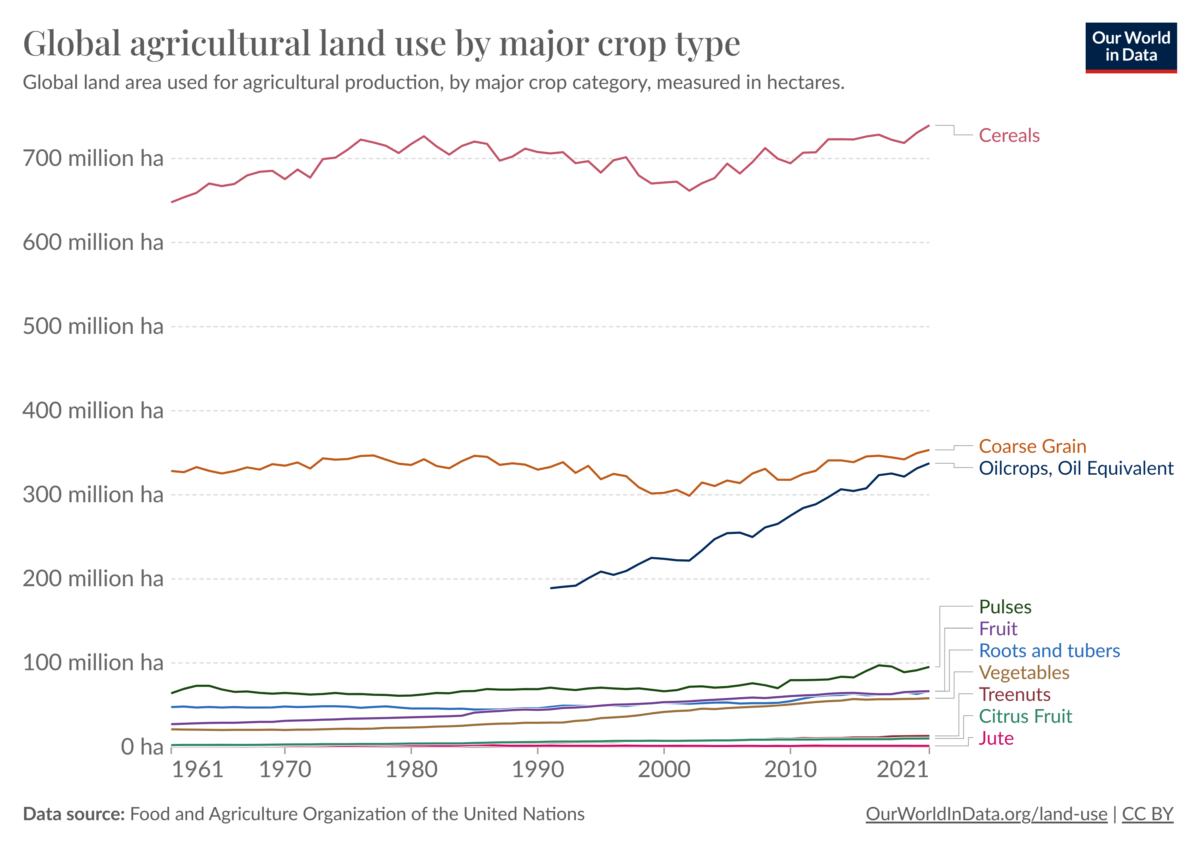New research finds that chemical synthesis of dietary fats is possible at scale.

When you pull a pie crust out of the freezer aisle at the grocery store or a sleeve of cookies off the shelf, it’s likely that one of the ingredients they contain is dietary fat, such as soybean or palm oil. These oils are agricultural products, but do they have to be?
A new study out of the University of California, Irvine, published in the journal Nature Sustainability, shows that chemically synthesized dietary fats, or food fats made scientifically in a factory—not harvested from a field—could be a viable way to reduce environmental impacts in the agriculture sector.
“We could drastically reduce some of the land that we’re using for things like oil crops, if we were making these in a factory and not using land at all,” says Steven Davis, PhD, Earth System scientist and lead author on the paper.
The amount of global agricultural land used for oil crops has nearly tripled in the last 60 years, making it one of the top three categories of agricultural products in terms of land use.
Palm oil, for example, is in many processed foods at American supermarkets. It has also come under fire because palm oil plantations in Asia, Latin America and West Africa have resulted in deforestation and negative impacts on human communities. Decreased land demands could lead to reforestation or preservation, which may benefit ecosystem biodiversity and reduce water use.

The amount of land used globally to grow oil crops has increased dramatically in the last several decades. (Graph by Our World in Data)
“If we targeted just a small amount of some of the very worst offending sources of these oils, palm oil plantations or soybeans that are grown on areas recently cleared in the Amazon, we can make very large reductions in some of the greenhouse gas emissions,” says Davis.
Fats could be synthesized at scale, says Davis. Using a source of carbon dioxide and hydrogen, the actual process of producing the fats could result in fewer emissions than traditional oil production. Still, he acknowledges that some consumers are wary of synthesized products—as the paper mentions, synthetic fibers have had significant environmental consequences; they are a source of plastic pollution through microfiber shedding, and the textiles themselves take a long time to break down. The impacts of this mean there’s a good reason to be cautious when approaching other forms of chemical synthesis, and more research is required. The sources of carbon would have to be fossil carbon, waste carbon (like municipal solid waste) or carbon captured from the air.
“I’m not someone who thinks we should stop agriculture altogether,” says Davis. “But I think it makes sense to prioritize the emissions related to that and the environmental impacts of that for the things that we really can’t do in other ways and that we really value the flavors of and the provenance of.”
Public acceptance of synthesized fats may be easier than other foods, since these fats are often present in processed foods and not always consumed as a standalone ingredient. Since farmed oil products and synthesized dietary fat are molecularly identical, it’s not something that would be distinguishable for consumers when eaten in this context.
“You don’t eat a Chips Ahoy! cookie and say, ‘man that palm oil in there was delicious,’” says Davis. “I don’t plan to stop buying apples, I think apples are a magical thing. But I don’t feel the same about palm oil that’s used in products that I buy.”
One important result of this shift would be a disruption in some of the agricultural communities that revolve around palm or other kinds of oil production. A change of this type would have to be carefully approached to ensure a just food transition, says Davis.
It doesn’t have to be all or nothing, he says. Not all vegetable oils need to go away.
“We’re not saying tomorrow you’re going to be eating like the Jetsons,” says Davis. “We are just talking about supplanting some of the most environmentally damaging sources of food with an alternative that hopefully wouldn’t make a meaningful difference to a lot of people in terms of their appreciation for foods that they eat.”
Not all palm oil is from Amazon or Sumatran forest burns. Supply chain transparency is again important. Thai palm for example does not appear to be a deforestation risk.
Also, which would you choose, sustainable farming or megacorporation lab dependency? Further, mega corporations are a larger component of carbon emissions than small family farms and co-ops. Would you rather drive more pollution potential toward a stronger lobbying group already fighting against climate change policy? I would not.
Not all palm oil comes from forest fires in the Amazon or Sumatra. Again, supply chain openness is critical.
The only reason for panic is farmers’ risk to loose income and live in the cities. Would be better if they read “Selfish gene” and become more like ants as citizens did.
Read
https://www.nytimes.com/2015/04/25/opinion/sunday/how-i-got-converted-to-gmo-food.html
Slow down there Dr. Davis. “Fats could be synthesized at scale, says Davis. Using a source of carbon dioxide and hydrogen,”. Plenty of CO2 and H2O around, but converting them into oil requires a LOT of other inputs, first, to obtain the raw C and H [are you thinking petroleum here?] and second to synthesize them into a fat. For a cool refresher into that intro of college Organic Chem that you enjoyed so much [at least I did], check out the organic structure of olive oil, and then take some deep breaths while thinking cool blue thoughts and look… Read more »
What is the carbon footprint of synthesized oils? The building, the electricity, and the energy used in the whole process. Also, it would not be a naturally occurring substance, something engineered.